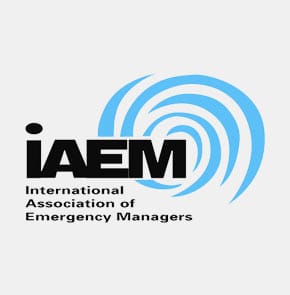University Headquarters (HQ) is an industry-leading, independent educational organization that provides independent college rankings using a proprietary formula to create first class, unbiased rankings. The team at University HQ strives to provide accurate and trustworthy rankings that highlight the best programs for emergency management.
What Does a Career in Emergency Management Entail?
A career or bachelor's in emergency management is unlike most careers; rather than the bottom line, the goals are public safety services and protecting lives. The field involves a commitment to the safety and well-being of others. Emergency management requires a willingness to work in the extremes of stress and to constantly address threats to public safety that come from natural disasters and man-made issues across the United States. This includes policies designed to control the public response to severe events that disrupt communities and put lives and safety at risk.
Emergency management is a vital public concern in the U.S. and in most nations around the world. Climate change and other natural influences have made some risks more severe. Storms can cause flooding and loss of water and electricity. Hurricanes can devastate areas and cause coastal flooding. Wildfires can consume thousands of acres of forest and destroy entire communities. These and other severe events are the subjects of emergency management programs and disaster preparedness, response, and recovery policy make up much of the content of the academics for each course in an associate or bachelor's in emergency management program, whether they are on-campus or online. These will give you the knowledge and skill to prepare everything that is required ahead of time in case of an emergency at a specific site or in a city and teach you how to develop a plan to manage emergency services using critical thinking and risk assessment.
There are a wide variety of jobs and career paths in the field of emergency management. The federal, state, and local governments maintain various levels of emergency response capability, such as the Federal Emergency Management Agency (FEMA) and the U.S. Department of Homeland Security, both of which hold some responsibility for emergency and disaster management, response, and recovery. The private sector also offers opportunities for emergency management careers. Emergency management professionals address natural disasters and emergency medical events that can occur with little warning, and the potential for human-made catastrophes such as terror attacks. The goals are to protect life, promote safety, and preserve essential infrastructure along with mitigation preparedness, response, and controlling the situation.
Featured Online Emergency Management Programs
How to Earn a Degree in Emergency Management
The entry-level online degree is an associate of applied science in emergency management or another related associate degree program catering to emergency management students. Applicants can use the associate degree and practical experience to enter the field and compete for positions. The online bachelor’s degree is the level of education that opens a wider range of jobs and career opportunities. In competitive jobs and geographic regions with high competition, employers seek candidates with at least a bachelor’s degree. A master’s in emergency management program will position graduates for leadership positions, educational roles, and senior-level responsibility.
Students can study at an accredited school, college, or university. Today, students have the option of completing online programs while they maintain other employment, business, or family obligations that might prevent full-time on-campus attendance. However, online options can provide you with the fexibility you need to gain the education you want.
Typical Emergency Management Degree Requirements
 Associate emergency management programs require a high school diploma or GED. The 60-hour curriculum has equal parts of general education and emergency management-related coursework. An online bachelor’s degree program also requires a diploma or GED and is comprised of 120 credit hours. In order to complete a master’s degree, you will need to have a bachelor's in emergency management already and then complete another 60 credit hours.
Associate emergency management programs require a high school diploma or GED. The 60-hour curriculum has equal parts of general education and emergency management-related coursework. An online bachelor’s degree program also requires a diploma or GED and is comprised of 120 credit hours. In order to complete a master’s degree, you will need to have a bachelor's in emergency management already and then complete another 60 credit hours.
Typical Emergency Management Certifications Needed
The Federal Emergency Management Agency (FEMA) has a public facing agency called the Emergency Management Institute. EMI offers self-paced educational opportunities. Among other educational activities, the EMI provides certifications for Emergency Management professionals. The Professional Development Series awards certifications. The International Association of Emergency Managers also offers certifications. These are voluntary certifications that boost the holder’s credentials.
Academic Standards for Emergency Management Degrees
FEMA and the EMI have issued standards for emergency management education. Many parts of the emergency management field occur in other disciplines such as engineering, management, and cartography. Currently, accredited universities and schools set their criteria. The Council for the Accreditation of Emergency Management Education (CAEME) works with special institutions and non-traditional schools to support high-quality emergency management training.
Exam/Experience Needed for Emergency Management Degrees
 There are no standard exams for entry into the emergency management field. However, some jobs may require or request certification. To the extent that a professional holds an emergency management position, they must meet the standards set for the profession they reside over, such as medical doctors, engineers, and finance professionals.
There are no standard exams for entry into the emergency management field. However, some jobs may require or request certification. To the extent that a professional holds an emergency management position, they must meet the standards set for the profession they reside over, such as medical doctors, engineers, and finance professionals.
Experience is a critical factor. Employers in the fields involved in emergency management show a strong preference for experience at all levels. Students and recent graduates, especially those earning their degree online, can have a competitive advantage by taking part in clinical exercises or hands-on projects. Applicants seeking to enter the profession with an online associate degree can raise their profile with volunteer work such as firefighting or emergency management associations.
Today, students can choose three levels of education to enter the emergency management field. The online associate degree is the fastest route with a two-year curriculum. The online bachelor’s degree offers a wider range of job and career options. The master’s degree establishes expertise in emergency management. Some students may choose to initially start with a criminal justice program and then later change to a bachelor's in fire science.
Associate Degree in Emergency Management Online
An online associate degree is the first entry-level degree for entering the field of emergency management. It is an ideal starting place for students that intend to work and gain experience as interns, volunteers, or in supervised positions. Most students complete the 60 credit-hour program in two or three years. About half of the credits are general education courses.
Example Online Courses for Associate Degrees in Emergency Management include:
- Emergency Planning and Prevention
- Operations Center Management
- Introduction to Crisis Decision-Making
- Disaster Mitigation Strategies
- Volunteer Management in Crisis
- Disaster and Emergency Response Procedures
Costs of Online Associates in Emergency Management
The tuition costs for two-year schools average $3,600 at public institutions and about $14,500 at private institutions. The below-listed information from the National Center for Education Statistics offers a more detailed breakdown.
- $9,289 for public college students living at home
- $20,306 for private college students living at home
- $13,585 for public college students living off-campus
- $24,602 for private college students living off-campus
Find Your Online Emergency Management Program
Bachelor’s Degree in Emergency Management Online
Degrees in emergency management prepare graduates to work in careers with local, state, and federal government agencies. Emergency managers coordinate among existing resources such as first responders and with specific event recovery groups such as FEMA, the Red Cross, and other similar organizations. Bachelor’s degree graduates may work directly with communities to plan and prepare for emergency situations.
Example courses for an Online Bachelor’s Degree in Emergency Management include:
- Organizational Theory
- Psycho-Social Impacts of Mass Disasters and Psychology of Disaster
- Hazard Risk and Vulnerability Assessment
- Emergency Planning
- Information Technology in Emergency Management
- Crisis Communication for Emergency Managers
- The National Incident Management System
- Organization and Management of Disaster Response
- Bioterrorism
Concentrations for an Online Bachelor’s Degree in Emergency Management include:
Cybersecurity, Homeland Security, Fire Science, and Public Safety Leadership.
The total tuition and expenses for a bachelor’s degree range from about $20,000 per year for public in-state, four-year students to $36,500 for out-of-state public-school students, and $46,950 for four-year private school students.
Master’s Degree in Emergency Management Online
An online Master of Science in Emergency management prepares graduates for mid to senior level positions in the public and private sectors with responsibility for emergency management, mitigation, awareness, and prevention. The programs also focus on continuity of operations.
Example courses for an Online Master’s Degree in Emergency Management:
- Emergency and Disaster Planning and Management
- Economics of Disaster Management
- Consequence Management: Terrorism
- Preparation and Response
- Risk Communications
- Security Risk Management
- Weapons of Mass Destruction and the New Terrorism
Concentrations for an Online Master’s Degree in Emergency Management include:
Healthcare, Disaster Preparedness, Business Continuity, and Fire Management.
The total tuition and expense costs for master’s students at public colleges is $18,690 and about $41,500 at private schools.
Earning Potential for Emergency Management Degree Fields and Occupations
Experience Affects Emergency Management Salaries
The overall salary trend for Emergency Management specialist is a straight upward line that grows with experience. The national average salary for an Emergency Management specialist is $55,000. One can define the entry level range as one to five years and the experienced range as 10 to 20 years. The experienced employee shows a substantial increase in salary and total compensation. The entry level is about 15% lower than the current national average; it is in the range of $49,500. Experienced Emergency Management specialists average about 10% above the national average at $61,000 per year. Along with experience, location is a factor in the amount of pay with some areas like New York and Washington state showing higher than average wages and Texas showing below average salaries.
Emergency Management Fields of Study Median Salaries
-
Hazardous Material Management
Hazmat situations create more than a physical incident like a risk of explosion. They often pose health risks due to toxic substances that can affect air and water. Containment and disposal of hazardous materials presents tremendous challenges and they are a severe threat to community well-being. The median salary range is $46,576 per year. -
Homeland Security Officer
This occupation focuses on detecting and blocking threats to national security. When disaster strikes, homeland security functions alongside FEMA to create a surge force to deal with extraordinary levels of disruption and damage. The median salary range is $46,500 per year. -
Public Health Preparedness
This field uses federal funds to prepare communities against infectious diseases, food-borne diseases, human-made events, and natural disasters. This public health funding specifically includes emergency management. The median salary range is $49,311 per year. -
Public Information Officer
Information officers help protect the public by issuing and coordination delivery of accurate information. These include warnings on sheltering, evacuations, and progress of events. They must use all available communications including social media effectively. The median salary range is $51,573 per year. -
Medical Emergency Preparation Administrator
Hospitals have an important role in disaster relief and recovery, and a disaster can also disrupt a hospital. The medical emergency preparation function plans for continuation of operations in the event of a disruption that affects the hospital as well as the surrounding community. The median salary range is $52,000 per year. -
Emergency Management Specialists
This occupation supports first responders and coordinates operating plans for exceptional occurrences and events like natural or human-made disasters. Emergency management specialists work to improve preparedness including training, planning, and resource assessments. The median salary range is $54,000 per year. -
Emergency Management Coordinator
EM coordinators take on the role of putting pieces of the available resources into an operational plan to prepare for disasters and other lesser, but still disruptive, events. The position often covers a city, county, or other defined area. The median salary range is $55,000 per year. -
Emergency Management Specialists
Preparedness is an essential part of emergency management, and it is the work the society can do to prepare for unpredictable life-threatening events. Emergency preparedness specialists look backward for historical events and patterns and forward to the changes in the environment, climate, and impacts of human activity. The median salary range is $55,000 per year. -
Engineering
In the event of a civil disaster, the main task is mitigation of damage to crucial infrastructure. In planning that seeks to avoid disasters, civil and other types of engineers help plan for resilient structures, redundant systems, and quick recovery. Engineers play key roles in the evaluation of disaster events that can lead to steps that can reduce or avoid them in the future. The median salary range is $65,000 per year. -
Geographer
In the field of emergency management, geographers have an essential role in some natural events like volcano eruptions, coastal floods, and earthquakes. Geographers provide critical information and analysis that help determine the causes of events and, to the extent possible, the likelihood of recurrences. Geographers help unwind the mysteries of causation of natural and human-made disasters. In the field of emergency management government agencies, international agencies, non-profits, and private companies employ geographers and cartographers. The median salary range is $75,000 per year.
Find Online Emergency Management Programs
Emergency Management Salaries by Occupation
The below-listed items describe the connection between education level and median salary. There is a clear relationship between higher education levels and higher salary and income.
Education Level & Average Median Compensation
| Secondary Education | $51,500 |
|---|---|
| Associate Degree | $57,100 |
| Bachelor’s Degree | $79,800 |
| Master’s Degree | $87,700 |
Salary by Occupation
| Occupations | Entry-Level | Mid-Career | Late Career |
|---|---|---|---|
| Hazardous Material Management | $38,100 | $45,000 | $52,000 |
| Homeland Security Analyst | $62,755 | $77,327 | $84,543 |
| Public Health Preparedness | $55,412 | $72,530 | $101,579 |
| Public Information Officer | $48,370 | $54,884 | $74,067 |
| Emergency Management Specialists | $53,140 | $65,825 | $83,972 |
| Continuity Planner | $53,000 | $101,299 | $141,585 |
| Emergency Mgmt. Coordinator | $53,140 | $65,825 | $83,972 |
| Emergency Preparedness Specialists | $52,000 | $57,000 | $70,000 |
| Engineering | $71,024 | $86,337 | $108,909 |
| Geographer | $40,000 | $46,000 | $62,000 |
Important Questions to Ask (FAQ)
How long does it take to earn an Emergency Management bachelor's degree online?
The online bachelor’s degree program for emergency management professionals takes four years and typically requires eight full-time semesters. Most students complete the bachelor’s degree in four to six years. Many online students pursue their degrees on a part-time basis and also take four to six years to complete a bachelor of science in emergency management.
How much does an Online Emergency Management bachelor’s degree cost?
The costs of the Emergency Management bachelor’s degree will depend on the type of school selected and the type of attendance. Tuition is the major cost involved in a bachelor’s degree, and the tuition rates vary by school. Online students can save on the expenses of living on or near a college campus. Cost estimates can guide the process of determining expenses and making a financially wise decision.
The average tuition costs depend on whether the school is a two year or four-year school. Further prices vary between public and private schools. In public schools, the rates differ for in-state students and out-of-state students. The below-listed items show the range of average tuition costs for a bachelor’s in emergency management.
- Public two-year schools’ average tuition is $3,520 per year
- Private two-year schools’ average tuition is $14,500 per year
- Public four-year schools in-state average tuition is $9,970 per year
- Public four-year schools’ out-of-state average tuition is $25,620 per year
- Private four-year schools’ average tuition is about $34,740 per year
Does the school have the major(s) you’re considering?
 The major that students want often reflects their job plans or career goals. Aligning your education path with your career path is vital. In the emergency management field, there are many majors and related courses of study that can lead to successful careers. They include Cybersecurity, Homeland Security, Emergency Administration and Planning, and Fire Sciences.
The major that students want often reflects their job plans or career goals. Aligning your education path with your career path is vital. In the emergency management field, there are many majors and related courses of study that can lead to successful careers. They include Cybersecurity, Homeland Security, Emergency Administration and Planning, and Fire Sciences.
How many students graduate “on time,” in four years?
The current trend is towards longer completion times and fewer students graduating on-time. At four-year private institutions, 53% graduate in four years and 65.6% graduate in six years. At four-year public institutions, 35% graduate at the four-year mark and 58.6% graduate at the six-year mark.
What kind of accreditation does the online program hold? How is it regarded in the field?
 When selecting an online program for an associate, bachelor’s, or master’s degree, students must carefully determine the type of accreditation offered by the school or program. Accreditation is a vital part of a college education because it affects the value and usefulness of a degree. Accreditation ensures employers and educational institutions of the quality of education behind the degree.
When selecting an online program for an associate, bachelor’s, or master’s degree, students must carefully determine the type of accreditation offered by the school or program. Accreditation is a vital part of a college education because it affects the value and usefulness of a degree. Accreditation ensures employers and educational institutions of the quality of education behind the degree.
FEMA and the Emergency Management Institute have fostered specialized accreditation for emergency management program through organizations such as the Foundation for Higher Education Accreditation (FFHEA). This approach accredits specific programs specialized in emergency management education. It largely leaves accreditation of entire schools, colleges, and universities to the Department of Education approved certification agencies under the Council for Higher Education Accreditation (CHEA). This includes regional accreditation, which is also a widely accepted form of accreditation.
Software/Technology/Skills Needed
The field of emergency management is so diverse that there are no single set of tools, tests, or technology that applies to all of its parts. The ICS or Incident Command System is an excellent starting place for gaining insight into the national emergency management system. Federal laws require state and local jurisdictions to use the ICS and students can learn about it from FEMA for free online, from the Independent Study Program.
Emergency Management Scholarships
-
NOAA/Hollings Scholarship
Amount: $9,500 per year
Deadline: January, 31Environmental studies are an eligible category, and that includes emergency management, investigations of natural phenomenon such as coastal flooding, and climate change. Emergency Management undergraduate students are eligible to apply for the National Oceanic and Atmospheric Administration (NOAA) Ernest F. Hollings Scholarship.
-
APCO International Scholarships
Amount: $500+
Deadline: March, 31APCO offers two scholarships: Silent Key & Commercial Advisory Committee Scholarship and the John D. Lane Scholarship. Eligible applicants must be full, associate, and agency group members of APCO. Scholarships support professional development and all APCO emergency management coursework.
-
IAEM Scholarship
Deadline: June 12The IAEM Scholarship Program awards support for full-time students pursuing emergency management and related careers. Eligible students must major in emergency management, homeland security, disaster management, or a related field.
-
DHS Scholarship Programs
The DHS Scholarship Program provides individual scholarships to support undergraduate students pursuing degrees in homeland security-focused courses of study. They also provide internship opportunities for students in a range of majors.
Professional Emergency Management Organizations
- NEMA
- DRI
- IADPR
- IAEM

NEMA
National Emergency Management Association
NEMA began as an organization of emergency management directors from various states. The organization invites students and the public to participate in education, awareness, and networking events and programs. NEMA is an advocacy organization that is active in state and federal legislation. Students can take advantage of networking, conferences, information resources, and education programs.

DRI
Disaster Recovery Institute
The DRI provides thought leadership and accreditation in business continuity and related fields. The DRI brings public and private sector continuity of operations professionals into a common cause of promoting education, public awareness, and preparedness. DRI offers certifications and education to the master’s level.

IADPR
The International Association for Disaster Preparedness and Response
The IADPR is a membership organization created to be an information sharing platform for professionals, volunteers, and other interested parties. The organization has a rich library of educational resources. The group welcomes students and new members and urges active participation.

IAEM
The International Association of Emergency Managers
The IAEM works to promote the field of emergency management as a means to save lives and protect property during disasters, mass accidents, and emergencies. With more than 5,000 members, the association is an advocacy and public education organization that seeks to ensure adequate resources and effective planning for emergency management.
Choosing an Online Accredited College
Students should make sure that the programs and schools selected have accreditation. Regional accreditation is the best level for colleges and universities. In the emergency management field, the Council on Higher Education has fostered some new accreditation agencies dedicated to certifying special or non-traditional schools of emergency management. The student should examine the accreditation carefully to see if it has the approval of the Council on Higher Education and the Department of Education.
Online vs. On-Campus vs. Hybrid
Today’s student has greater options for attending college and getting the benefits of higher education. Online education permits many more people to attend college and graduate school; they can do so without giving up a job or business or sacrificing family and other obligations. Students can choose to attend on-campus programs taught in classrooms and lecture halls, they can choose to study through online courses, and they can opt to mix the on-campus and online coursework into a hybrid program.
Among the benefits of online attendance is the flexibility of attending class from anywhere on the Internet at any time. The online classwork is asynchronous, meaning that students do not gather in the same place and time to participate. Online classwork can be full or part-time, and students can take longer than two, or four years to complete their associate or bachelor’s degrees.
Frequently Asked Questions
What degree do you need for emergency management?
The minimum requirement for emergency management is only a bachelor’s degree. While a master’s might mean that you can make more or be more likely to be hired above other candidates with bachelor’s degrees, the field is quite specialized. This means that those who have earned a bachelor’s degree specifically in emergency management have gained specialized knowledge in the field. They will have all the knowledge necessary to succeed in an emergency management career.
What can you do with a degree in emergency management?
There are a number of titles that you can apply for when you earn a degree in emergency management, even if you only earn a bachelor’s.
Here are just a few options.
- Emergency Specialist or Manager
- Environmental Health and Safety Specialist or Manager
- Emergency Preparedness Manager
- Safety Coordinator
- Security Director
- Emergency Medical Services (EMS) Manager
- Disaster Recovery and Business Continuity Specialist
- And More
How much money can you make with an emergency management degree?
Based on the averages of the job titles mentioned above, those with a bachelor’s degree in emergency management can expect to earn between $35,000 and $100,000 per year when they start out. Obviously, this is a wide range of opportunity and the role you find will determine how much you are able to earn. However, you can increase how much you can expect to earn by gaining a master’s degree, experience in the field, and pertinent certifications in the field.
Does the College Have Post-Graduate Job Placement Help & Assistance?
Schools can play a key role in helping seniors and recent grads find jobs and kick start a career. When selecting a school and program for emergency management, it is important to look at the school’s system for helping upper-class students get internships, interviews, and referrals. Some schools have elaborate and long-standing employment centers that counsel students and work with local and national employers to generate interviews and offers for their seniors and recent grads.
In the emergency management field, work experience is particularly important. There are no academies and standard training systems as with police, medical emergency, and fire responders. When combined with a degree, work experience can be a decisive factor in getting a job or getting into a career track.
The school or university is more than classrooms and students; it is a community of alumni, patrons, sponsors, business partners, and local communities. Students can take advantage of this well-placed community to increase their visibility, networking, and potential referrals. Students can join school-related organizations and associations and become part of the school’s network and community.
Why You Need to Consider How Rating/Accreditation Can Affect Your Salary?
Rating and accreditation can affect a graduate’s job, career, and salary prospects. The school rating compares a university or college with similar schools and reflects the performance of its graduates over a long period. Accreditation is an independent assessment of a school or specific program that attests to its quality. Accreditation looks at the faculty, facilities, and other learning resources.
The best situation for a student or graduate is regional accreditation and a positive school reputation. When employers consider educational qualifications, they require an assurance that the education represented by the degree is high-quality learning that equips the applicant to perform as expected in the job or career track. Regional accreditation, program accreditation, and national accreditation can each help expand the range of opportunities for jobs and career advancement.
sources:
- Bureau of Labor Statistics. Occupational Outlook Handbook, Cartographers and Photogrammetrists
- Bureau of Labor Statistics. Occupational Outlook Handbook, Emergency Management Directors
- Bureau of Labor Statistics, Career Outlook, Homeland Security
- FEMA, Emergency Management Institute
- FEMA, National Incident Management System
Search All Programs
